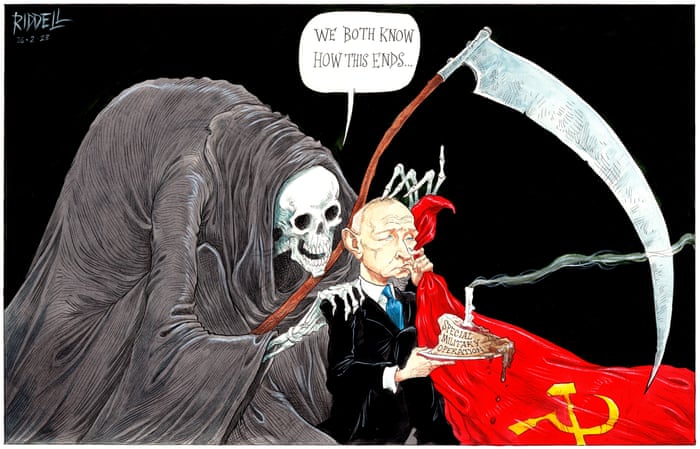
Russian leader Vladimir Putin is frantically working to rewrite the narrative of what exactly happened over the weekend after heavily-armed Russian Wagner mercenaries raced toward Moscow to kill or remove top military officials like longtime Putin confidant Defense Minister Sergei Shoigu.
Putin spoke publicly Monday evening and again Tuesday morning, apparently now keenly aware world leaders and certain global markets were growing anxious about potential instability inside the country, which happens to be the world's most nuclear-armed nation and one of its largest oil exporters.
"The main thing" to know now, Putin said Monday night in a nationally televised address, is that the events of the weekend "united everyone, [and] brought our people together," he said. (Such unity was clearly not evident from residents of Rostov-on-Don, which Wagner seized briefly during its putsch toward Moscow.) "An armed mutiny would have been suppressed in any event," Putin claimed. A dozen of his soldiers reportedly perished after Wagner shot down six helicopters and an airplane sent to stop them racing to the capital. The Russian leader then thanked "our servicemen, law enforcement and special services officers who stood in the mutineers' way," and insisted that "as soon as these events started to unfold, in keeping with my direct instructions, steps were taken to avoid spilling blood."
"An armed mutiny would have been suppressed in any event," Putin claimed. A dozen of his soldiers reportedly perished after Wagner shot down six helicopters and an airplane sent to stop them racing to the capital. The Russian leader then thanked "our servicemen, law enforcement and special services officers who stood in the mutineers' way," and insisted that "as soon as these events started to unfold, in keeping with my direct instructions, steps were taken to avoid spilling blood."
To Wagner's mercenaries and convicts, Putin promised, "Today, you have the opportunity to continue your service to Russia by signing a contract with the Defence Ministry or other law enforcement or security agency or return home. Those who want to are free to go to Belarus," he said, which seems to confirm that no one in the mutiny will face criminal charges, including, of course, Wagner leader Yevgeny Prigozhin—whose plane was reportedly spotted landing in Minsk on Tuesday.
Putin also admitted Wagner has been fully funded by the Russian state for many months, which contradicts what his top diplomat insisted publicly back in May 2022, Mary Ilyushina of the Washington Post noted. In spite of this revelation, Putin added somewhat dejectedly on Tuesday, "I hope that no one stole anything or stole not so much, but we'll deal with all this." He also briefly thanked his Belarussian counterpart, Alexander Lukashenko, for brokering the deal that diverted Wagner's tanks and fighters away from Moscow and into Belarus.
So goes Belarus: "If Russia collapses, we will all be under its wreckage, and we will all die," Putin's fellow autocrat Lukashenko said publicly Tuesday in Minsk.
Washington is exasperated: "Putin could have arrested the Wagner commanders for treason, but instead offered to forgive and integrate Wagner forces, which indicates his need for trained and effective manpower," according to analysts at the Institute for the Study of War, writing Monday evening. "Putin's acknowledgement that he made a personal promise, presumably that Wagner personnel who went to Belarus would be safe there, was remarkable," ISW adds, but cautions, "The long-term value of that promise, Putin's speech notwithstanding, is questionable."
Prigozhin himself said Monday he never sought to unseat Putin, but was instead angry at the military for attacking his forces. That plea "clearly failed," ISW writes.After Prigozhin spoke, Putin referred to the mutiny as a blackmail attempt organized by "traitors." And that would seem to suggest Wagner will likely continue as an entity tied closely to the Russian state, "but it will likely not include Yevgeny Prigozhin," ISW predicts.
A second opinion: "This all seems far from over," said Russia expert Michael Kofman of the Virginia-based CNA. Others agree.
"[T]he greatest threat to Putin at this point comes not from Prigozhin, but from the potential that these events break the hermetic seal on the public consensus that there is no alternative to Putin," said Professor Sam Greene of the Center for European Policy Analysis, writing Tuesday on Twitter. In the meantime, "Putin's support among the elite is not, fundamentally, ideological: it rests on their belief that he can, among other things, keep the system together and keep them safe from the people," Greene says. "If that belief falters, they may begin looking for a more effective leader."







No comments:
Post a Comment
Note: Only a member of this blog may post a comment.